SBV moves in line with global money-tightening tendency
The current interest rates are equal to before the COVID-19 pandemic began, making it difficult for businesses that depend on banks for capital.
After the SBV move, BAC A BANK updated its new savings interest rate table with the highest rate of up to 8.6 per cent per year for loyal customers. Specifically, with $40,000 in 24-month savings, the interest rate is 8.4 per cent per year plus 0.2 per cent exclusively for women.
 |
| Some banks have updated interest rate tables to assist customers, photo Le Toan |
On October 26, online deposit interests for all terms under six months at SCB were increased from 5 per cent per year to the latest SBV ceiling of 6 per cent per year.
Commenting on the SBV’s decision, an analytical director of a securities company assessed that the key was to protect the exchange rate, not inflation. “The central rates have increased by nearly 7 per cent, and commercial bank rates have increased by nearly 9 per cent. Meanwhile, foreign exchange reserves are below three months of imports, so the operator cannot sell more US dollars. Therefore, the appropriate move is for the SBV to combine money supply control and interest rate hikes to protect the VND,” the director told VIR.
Nguyen Minh Cuong, principal country economist of the Asian Development Bank (ADB), said that the biggest risks for Vietnam were external rather than internal problems. These factors are increasingly affecting the Vietnamese economy, even at a slow pace.
“Developed countries have made a very harsh decision when raising interest rates to fight inflation, thereby having a knock-on effect on the capital and currency markets, especially the financial markets,” Cuong said.
The SBV’s two interest rate hikes in the past month are considered reasonable and in line with regional and global trends, he added, and is also a measure to limit inflation in Vietnam.
“Raising the operating interest rate and widening the exchange rate band are appropriate measures to contribute to macroeconomic stability and create a foundation for long-term growth,” Cuong noted.
According to Stephanie Betant, national director of Corporate Banking Services at HSBC Vietnam, looking back at the long-term situation in Vietnam shows that interest costs and exchange rates have increased while inflation is on an uptrend. “Enterprises need to plan for funding while considering long-term factors, diversifying different sources of capital, and focusing on the exchange rates and solutions to hedge against exchange rate risks,” she said.
Alain Cany, chairman of the European Chamber of Commerce in Vietnam, said that Vietnamese enterprises would face more difficulties than foreign-invested ones. Foreign businesses can just borrow money in Europe at an even lower price because the euro is weakening. For them, the SBV’s interest rate hike does not cause much damage.
“This is why the SBV has worked so hard to keep the VND strong and interest rates low. This shows that the SBV has run their policy very well while it was unanticipated that the USD would appreciate so much,” Cany said.
He emphasised his confidence that the VND would bounce back as soon as the world economy stabilises and grows again. “If foreign investment continues to be strong, the government improves the infrastructure well, and we continue to build solar and wind power to meet market demand, I think this country could be a winner,” he said.
| Nguyen Minh Cuong - Principal country economist Asian Development Bank
The interest rate hike has been delayed for a long time and the situation cannot last any longer. This is also inevitable in the face of strong pressure on foreign exchange reserves, which is an indicator of national creditworthiness and at the same time is subject to great expectations in the last months of the year. Therefore, I think the most important challenge right now is to manage the exchange rate. The history of exchange rate management of the State Bank of Vietnam shows it waited until a certain time to announce the new exchange rate and this created a psychology of hoarding foreign currency in both the official and informal markets. The hoarders often awaited a new exchange rate to make a profit. But Vietnam has switched to operating with a margin that makes the exchange rate more flexible when it is continuously adjusted and, most importantly, has reduced the phenomenon of hoarding US dollars. The exchange rate is currently sliding in a stable band, but it would need a long way to reach a free level. It can be said that exchange rate risks always appear in countries like Vietnam whose trade is quite open to the global economy. But it must be noted that Vietnam has taken a roadmap and implemented a flexible exchange rate in the future. This is a very good support for the economy, because with the existing margin, it is not entirely correct to say that the VND has devaluated because the exchange rate has always fluctuated according to the market within the allowable range. We have all witnessed the adjustment of the exchange rate band which is causing VND to have a crawling peg and there is a risk of increasing import inflation, but at the same time, the SBV has raised interest rates, showing its flexibility. This, on the one hand, can help reduce the pressure on foreign exchange reserves by loosening the exchange rate band, but on the other hand, it can raise interest rates to curb import inflation due to the depreciation of VND. The SBV is now using these two tools very flexibly and cautiously. When it comes to challenges, I think that interest rates may be difficult to increase sharply, especially the ceiling of deposit and lending rates because they will have a direct impact on growth. But the space to raise the exchange rate may remain. However, in order to apply the policy effectively, the banking foreign exchange and black market markets must be managed sturdily. It is necessary to prevent the situation that while the exchange rate band is loosened, the markets failed to be tightly controlled. Similarly, it is reasonable to raise interest rates, but an absence in tight management can result in businesses taking advantage of bank loans to provide the loans for other businesses to make a profit. |
What the stars mean:
★ Poor ★ ★ Promising ★★★ Good ★★★★ Very good ★★★★★ Exceptional
Related Contents
Latest News
More News
- Private capital funds as cornerstone of IFC plans (February 20, 2026 | 14:38)
- Priorities for building credibility and momentum within Vietnamese IFCs (February 20, 2026 | 14:29)
- How Hong Kong can bridge critical financial centre gaps (February 20, 2026 | 14:22)
- All global experiences useful for Vietnam’s international financial hub (February 20, 2026 | 14:16)
- Raised ties reaffirm strategic trust (February 20, 2026 | 14:06)
- Sustained growth can translate into income gains (February 19, 2026 | 18:55)
- The vision to maintain a stable monetary policy (February 19, 2026 | 08:50)
- Banking sector faces data governance hurdles in AI transition (February 19, 2026 | 08:00)
- AI leading to shift in banking roles (February 18, 2026 | 19:54)
- Digital banking enters season of transformation (February 16, 2026 | 09:00)


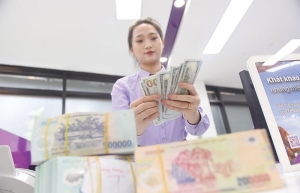
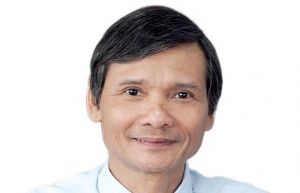
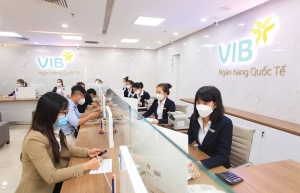
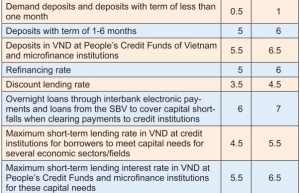
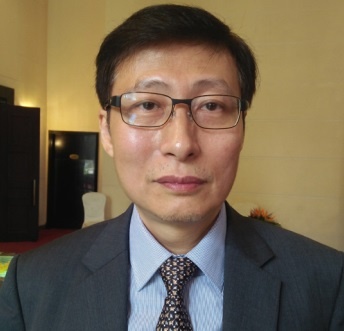
 Tag:
Tag:




















 Mobile Version
Mobile Version